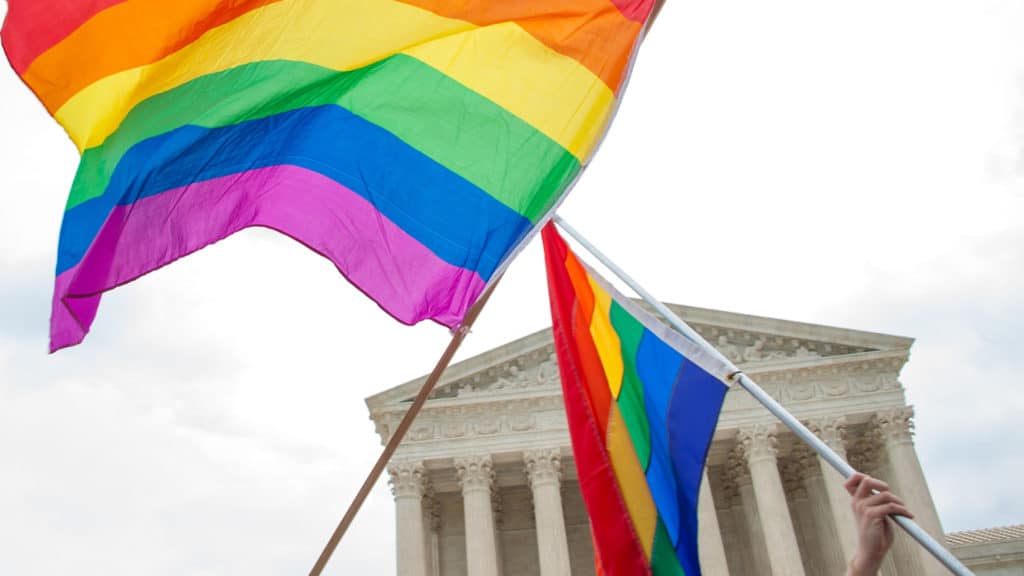A Landmark Decision

Q: I understand that the Supreme Court recently decided a case expanding the scope of employment discrimination laws. How might that affect associations?
A: A recent Supreme Court decision determined that federal law prohibits employment discrimination based on sexual orientation or transgender status. The decision affects any association with employees and may have broader implications.
Last June, in Bostock v. Clayton County, the U.S. Supreme Court ruled that Title VII of the Civil Rights Act of 1964 prohibits employment discrimination against a person for being homosexual or transgender. Title VII states that it is “unlawful for an employer to fail or refuse to hire or to discharge any individual, or otherwise discriminate against any individual with respect to compensation, conditions, or privileges of employment, because of such individual’s race, color, religion, sex, or national origin.”
Each of the three plaintiffs in the consolidated cases before the Supreme Court had been fired, notwithstanding their good employment records, after their employers learned that they were gay or transgender. The employees challenged those firings under Title VII. The question for the court was whether unlawful discrimination because of “sex” includes sexual orientation and gender identity. The court first noted that a discriminatory firing is prohibited if the termination would not have happened “but for” the prohibited cause. According to the court, an employer cannot avoid liability just by citing some other factor that contributed to its challenged employment decision. As long as the employee’s sex represented one reason for the decision, the law is triggered.
The court next addressed the fundamental issue, i.e., whether firing someone for being gay or transgender necessarily involves a firing “because of sex.” The court concluded that it does. In reaching that conclusion, the court reasoned that firing someone for being homosexual implicitly involves terminating that person for engaging in conduct that would be tolerated in a person of a different sex. Firing a male employee because he is gay, for example, amounts to firing a man for being attracted to other men, behavior that would not be cause for termination if the employee were a woman. Similarly, terminating the employment of an individual because they are a transgender female (an individual assigned the male sex at birth who has transitioned to living and working as a female) amounts to firing that employee for exhibiting the traits of a woman, behavior that would not be cause for termination if the employee were assigned the female sex at birth.
The court concluded that “an employer who intentionally treats a person worse because of sex — such as firing the person for actions or attributes it would tolerate in an individual of another sex — discriminates against that person in violation of Title VII.” Thus, the court found, “it is impossible to discriminate against a person for being homosexual or transgender without discriminating against that individual based on sex.”
The court’s holding that Title VII, a federal law, prohibits employment discrimination against a person for being homosexual or transgender is a landmark decision because it significantly alters the employment landscape in the United States. Prior to the court’s decision, employers in 27 states could have fired an employee because the employee was gay or transgender. That was true notwithstanding the Supreme Court’s 2015 decision in Obergefell v. Hodges, which struck down state laws banning gay marriage. Consequently, until this past June, a gay employee in a state without employment law protections for sexual orientation and gender identity legally could marry their partner on a Saturday but then legally be fired by their employer on the basis of their sexual orientation the following Monday. That is no longer the case. It is now unlawful in every state for an employer to discriminate against an employee because the employee is gay or transgender.
The practical ramifications of the court’s decision are straightforward in the sense that it is now against federal law for an employer to discriminate against gay and transgender people in an employment context. Employers need to review their employee handbooks and workplace notices to ensure that they reflect this latest development in federal law.
The broader implications of the court’s landmark ruling, however, are less clear. For example, the court did not consider whether employers need to ensure that transgender employees are allowed to use the washrooms or locker rooms of their choice; whether dress codes need to change; or whether religiously-affiliated employers will be held to strict account under Title VII if they assert that the tenets of their faith are not compatible with gay or transgender employees. The court also did not address discrimination based on sexual orientation or gender identity outside the employment context (e.g., with respect to membership decisions or health care benefits). Those circumstances simply were not part of the record under review by the court in Bostock. For now, then, employers must rely on state laws and regulations, lower court decisions and commentary for guidance on those issues.
Tags
Related Articles
BAE Chicagoland Kicks Off: Join the Movement!
Black Association Executives (BAE) is officially in Chicagoland, bringing a bold new community to Black...
The Weight We Carry: What Teams Wish Leaders Understood
Association professionals are feeling the strain of relentless change—burnout, shifting expectations, and emotional fatigue are...
Workforce to Hit 30% Gen Z by 2030: Ready or Not?
Gen Z isn’t lazy—they’re reshaping work with speed, collaboration, and purpose. Here’s how to engage...





